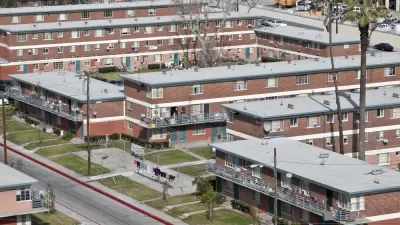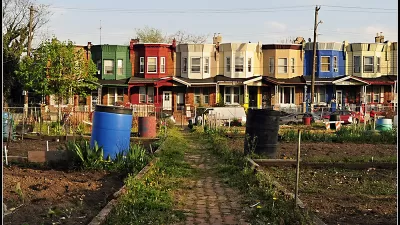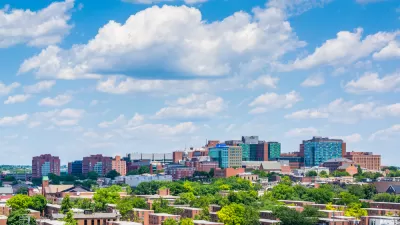The relationship between poverty, poor health and obesity is complex, writes Daniel Engber. However, research is showing that "obesogenic" environments and social inequality play leading roles in all three.
Being fat can make you sick. Being sick can make you poor. And being poor can make you fat. The complex interplay between these factors makes it difficult to plan for public health policymaking. Futhermore,
"Those in greatest need...tend to be both poor and fat. We know, for instance, that the lower your income, the more likely you are to inhabit an 'obesogenic' environment. Food options in poor neighborhoods are severely limited: It's a lot easier to find quarter waters and pork rinds on the corner than fresh fruit and vegetables. Low-income workers may also have less time to cook their own meals, less money to join sports clubs, and less opportunity to exercise outdoors."
Engber writes that programs designed simply to reduce obesity won't work; a more just distribution of a society's resources can help alleviate poverty, ill health and obesity.
FULL STORY: Does poverty make people obese, or is it the other way around?

Maui's Vacation Rental Debate Turns Ugly
Verbal attacks, misinformation campaigns and fistfights plague a high-stakes debate to convert thousands of vacation rentals into long-term housing.

Planetizen Federal Action Tracker
A weekly monitor of how Trump’s orders and actions are impacting planners and planning in America.

In Urban Planning, AI Prompting Could be the New Design Thinking
Creativity has long been key to great urban design. What if we see AI as our new creative partner?

King County Supportive Housing Program Offers Hope for Unhoused Residents
The county is taking a ‘Housing First’ approach that prioritizes getting people into housing, then offering wraparound supportive services.

Researchers Use AI to Get Clearer Picture of US Housing
Analysts are using artificial intelligence to supercharge their research by allowing them to comb through data faster. Though these AI tools can be error prone, they save time and housing researchers are optimistic about the future.

Making Shared Micromobility More Inclusive
Cities and shared mobility system operators can do more to include people with disabilities in planning and operations, per a new report.
Urban Design for Planners 1: Software Tools
This six-course series explores essential urban design concepts using open source software and equips planners with the tools they need to participate fully in the urban design process.
Planning for Universal Design
Learn the tools for implementing Universal Design in planning regulations.
planning NEXT
Appalachian Highlands Housing Partners
Mpact (founded as Rail~Volution)
City of Camden Redevelopment Agency
City of Astoria
City of Portland
City of Laramie





























